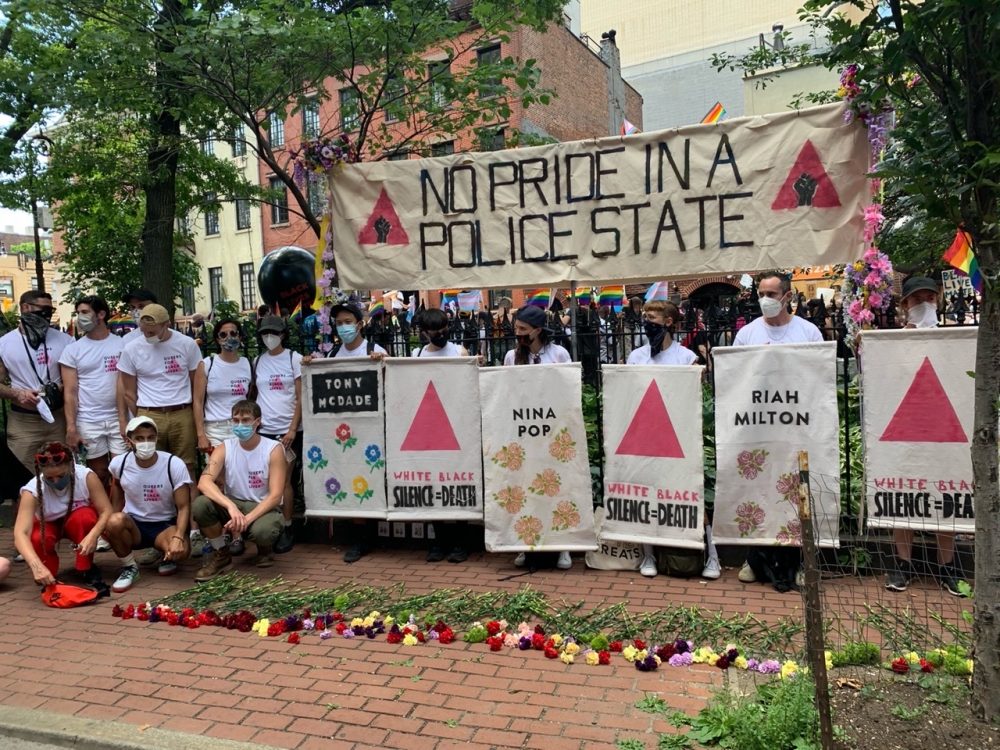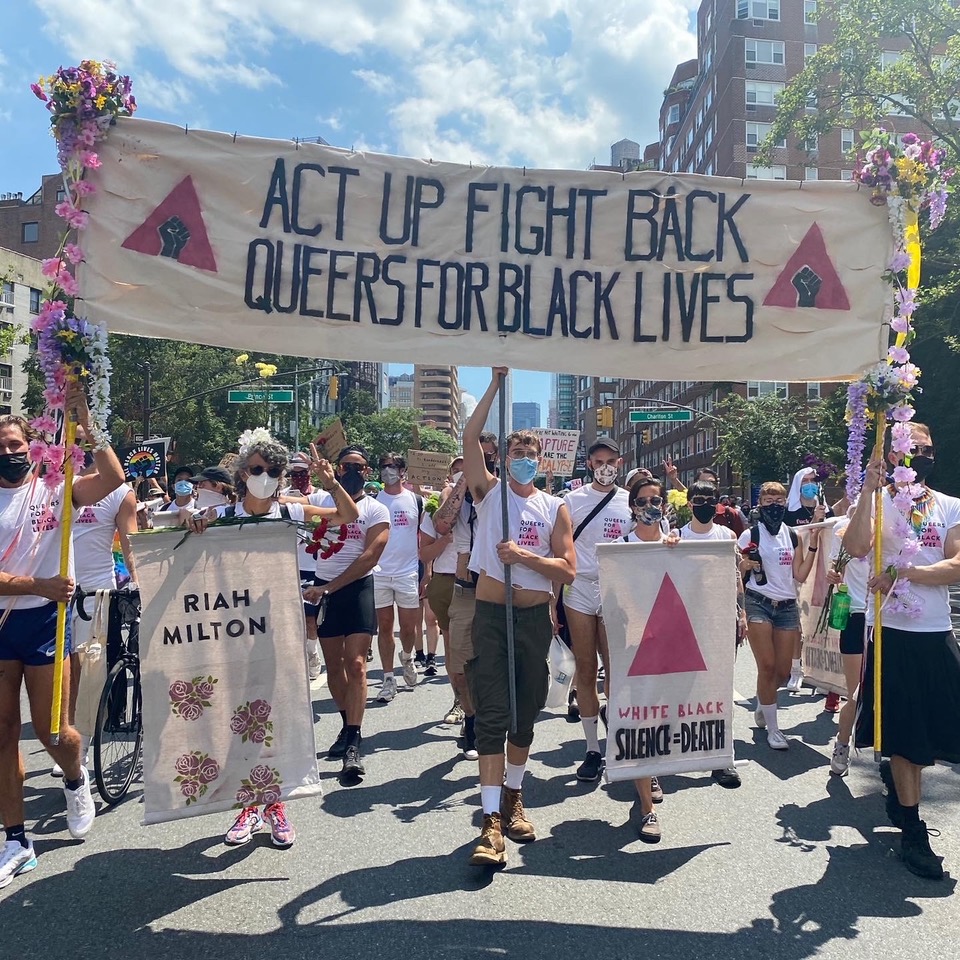Design & Activism Issue 5 2021
Queers for Black Lives
J.T. McPartlin

Fig. 1 Queers for Black Lives outside Stonewall during the 2020 Queer Liberation March. Queers for Black Lives, No Pride in a Police State, New York, 2020.
I made this banner as a part of the collective Queers for Black Lives for the 2020 Queer Liberation March. The two-sided handmade banner uses the iconography and language of past social and political movements as a symbol of solidarity and protest. “NO PRIDE IN A POLICE STATE” (Fig. 1) was specifically chosen as a reaction to the militant police reactions to peaceful protests during gay pride month. “ACT UP FIGHT BACK” (Fig. 2) and the pink triangle are adapted from the AIDS activist group ACT UP. The black fists penetrating the triangles allude to the Black Panther fist that has now been incorporated as a symbol for the Movement for Black Lives.

Fig. 2 Queers for Black Lives Collective participating in the 2020 Queer Liberation March. Queers for Black Lives, Act Up Fight Back, New York, 2020.
These references create a connection between the social reactions to the AIDS epidemic and racial injustice within American society. The PVC poles are covered in ribbons and silk flowers to add a sense of whimsy as a contrast to the harsh language of the banner. More importantly, they evoke maypoles, symbols of worker’s rights that are typically erected on May 1, also known as International Workers’ Day.
received his MA in the History of Design and Curatorial Studies program in 2018 from Parsons. He now teaches Design History, Pop Culture Theory, and Research and Writing at Parsons School of Design.
